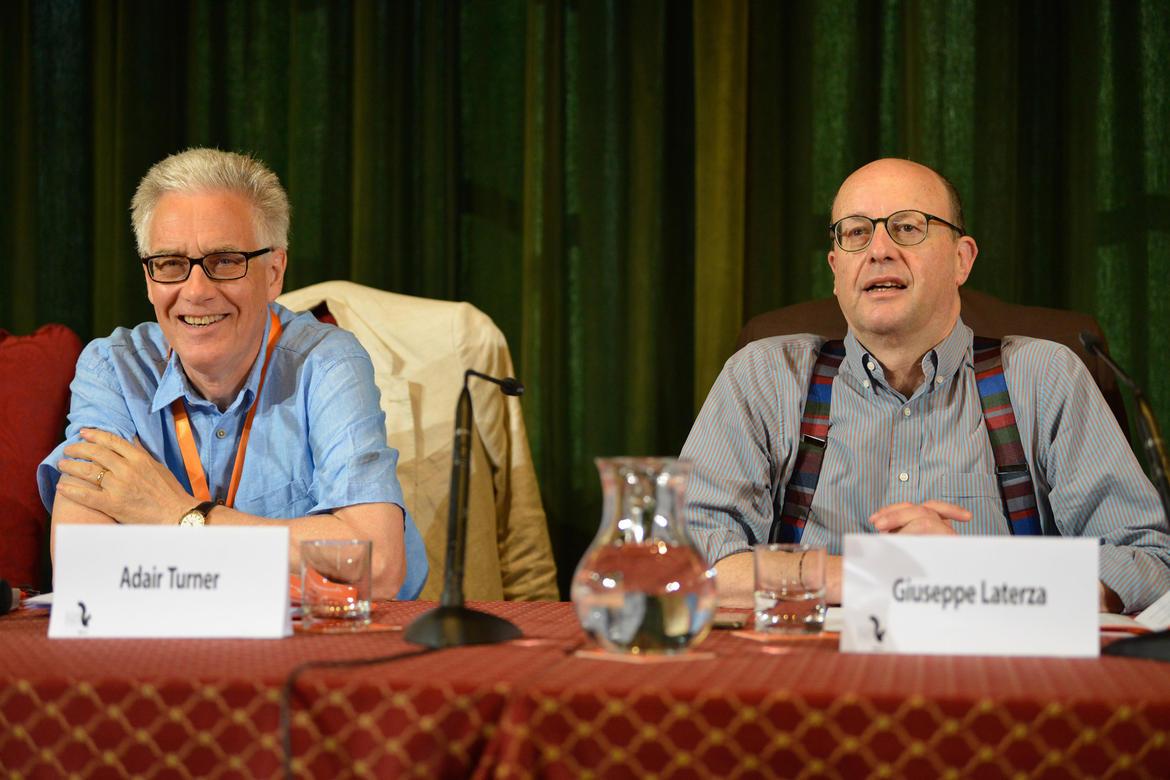
Adair Turner is an anomalous economist who has succeeded in combining academic commitment with experience in the public and private sectors during his long career. Today he lectures at the London School of Economics and is Chairman of the Institute for New Economic Thinking. Economic thinking was indeed the leitmotif in his presentation, dealing with the delicate subject of the relationship between capitalism and automation, also in the historical context. “Orthodox neoclassical economics prevailed until 2008”, stated Adair Turner at the Festival. “In the last ten years, aided by the economic crisis, the orthodoxy that also led to political errors, increasing inequality and generating populism, still does not have a sole form of economic thinking as a legacy”.
Perhaps it is a good thing, reflected the British economist, part of the panel of speakers, along with Innocenzo Cipolletta and the publisher Giuseppe Laterza, the “fathers” of the Festival from the very first edition. For Turner, the laissez-faire economic approach has created several incongruities. Economics must bear in mind that human thinking is not always rational. There is no elegant economic mathematical model; it is necessary to accept the idea of future uncertainty. Turning to the future, quoting several fellow economists and thinkers, from Keynes to the present day and talking about the challenges and partial truths that appear before us, Turner focused on the Festival’s theme, anticipating a scenario in which by the end of this century “it will be possible for all jobs to be automated. Every 18 months computing and broadband power doubles.”
Turner specified that he was referring to robots not just as machines with almost human arms, eyes and a smiley face, but rather as any combination of hardware and software that can perform any sort of work previously carried out by man. Sensorial perception and fine motor reflexes are already being transferred to machines. The faster the technological progress, the lower growth and productivity are. Automation undoubtedly threatens income. Poorly paid, highly repetitive activities (sewing, picking vegetables) will be automated. There is instead a proliferation of activities linked to care and home delivery, which pay little. For Turner, low fertility and an ageing population are not a problem, quite the opposite: “A decreasing population can hinder the drop in salaries”, he assures. If the wealth accumulated thanks to possession of the intellectual property for artificial intelligence remains in the hands of a few, productivity will not increase. Today there are already many zero sum activities, or that cancel themselves, for example illegal activities linked to the web and defending cybercriminals. Will poor people live in caravan camps as predicted by Tyler Cowen’s dystopia?
Innocenzo Cipolletta was entrusted with concluding the session: “What will economic theory, which must study economic decisions, be based on in the near future? On human behaviour or on algorithms that today already advise us on how and where to invest?”
Watch the interview with Adair Turner:
Web site: www.festivaleconomia.it
Twitter: https://twitter.com/economicsfest
Facebook: https://www.facebook.com/festivaleconomiatrento
Instagram: https://www.instagram.com/festivaleconomia/










